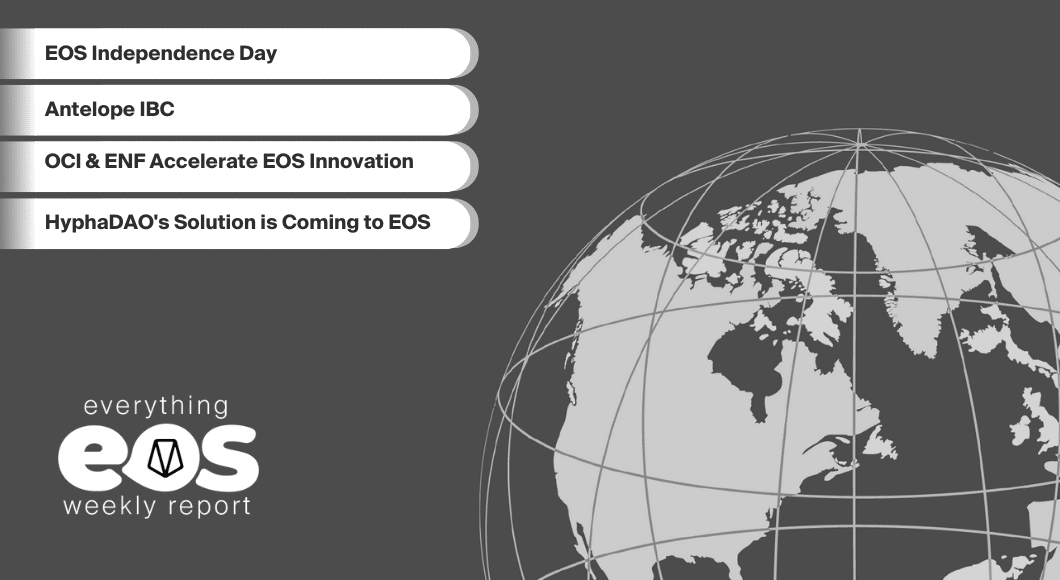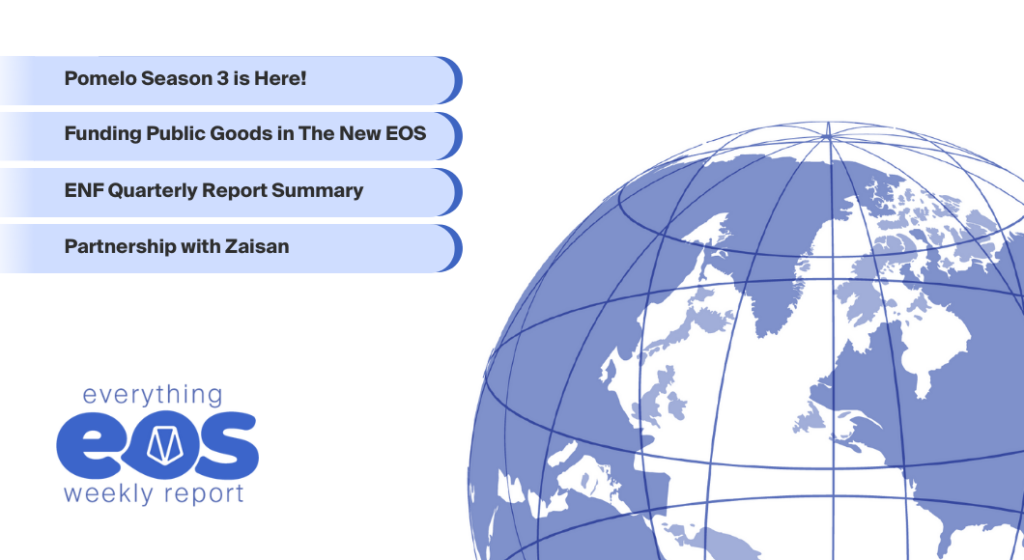- EOS Independence Day
- Antelope Inter-Blockchain Communication Protocol
- HyphaDAO’s “Organization-in-a-Box Solution” Is Coming to EOS
- OCI and the ENF Strike Multi-Million Dollar Deal to Accelerate Innovation on EOS
- Pomelo Season 3 Analysis Results
- EOS Dapp on the Playstation 5
- TrustEVM GameFi Hackathon 2022 Demo Day
- Weekly EOS Community Events & Upcoming Conferences
EOS Independence Day
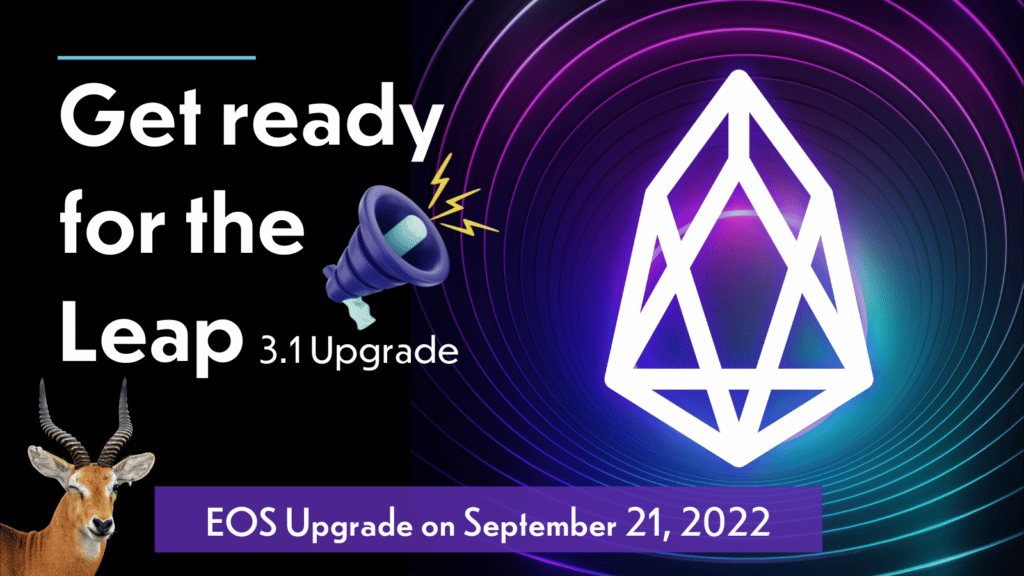
In February, representatives of blockchains built on the EOSIO software banded together, later settling on the new name “Antelope” to take ownership of the codebase they share. With the consensus of their respective chains, through collaboration and strategic investment, the new coalition funded the development of network upgrades and long-requested features.
The Leap v3.1 release incorporates these upgrades into the first independently controlled release of EOS’s core software and represents a rapid acceleration in core development on EOS.
Starting September 12, block producers gather on daily Go/No-Go calls to evaluate the network’s readiness for the upgrade and to work out any bugs or complications before the EOS Independence day of September 21. This procedure echoes the process leading up to the last consensus upgrade to EOSIO v1.8 on September 23, 2019, and everything is on track with the timeline for a smooth September 21 upgrade.
Some of Leap v3.1’s new features enable the upcoming inter-blockchain communication (IBC) solution, pending release after the network upgrades on September 21. This IBC technology will enable communication between all Antelope chains.
Antelope Inter-Blockchain Communication Protocol
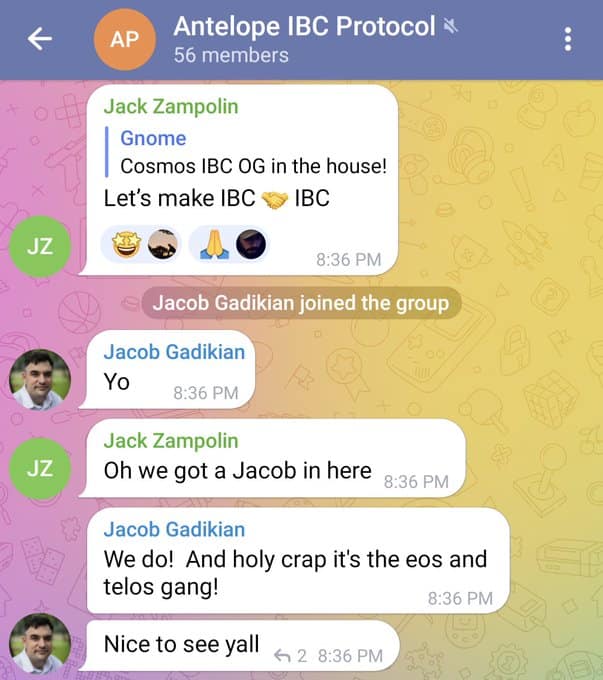
IBC, or inter-blockchain communication, is one of the biggest challenges in the blockchain space. A distributed system is good at quickly checking its ledger for validity but has trouble checking outside sources.
Antelope chains are at a strategic advantage in overcoming this challenge. With a shared codebase, the coalition is well-positioned to implement IBC across their respective chains. The UX network is supplying its trustless IBC solution to the Antelope coalition, fulfilling the long-awaited promise of IBC on EOS.
Not all IBCs are created equal. Most IBC solutions require trust in a single smart contract. Users lock their tokens in this contract, and the data from that contract feeds into a smart contract on the other chain and vice versa. This single point of failure opens up users to high levels of risk.
Antelope’s IBC is trustless and does not require locking tokens in a smart contract. The design enables true IBC across Antelope chains, allowing users to transfer their tokens directly from one chain to another. With Antelope IBC, developers can run seamless sidechains, enabling application-specific Dapp chains and limitless horizontal scaling.
The collaborative culture of the Antelope coalition also inspires collaboration in others, and the group’s openness to mutually beneficial initiatives has opened up the possibility of integrating Cosmos with Antelope IBC. Cosmos developers have been joining in on the discussion on Telegram, and both sides are interested in integrating the two ecosystems’ trustless IBC solutions.
HyphaDAO’s “Organization-in-a-Box Solution” Is Coming to EOS
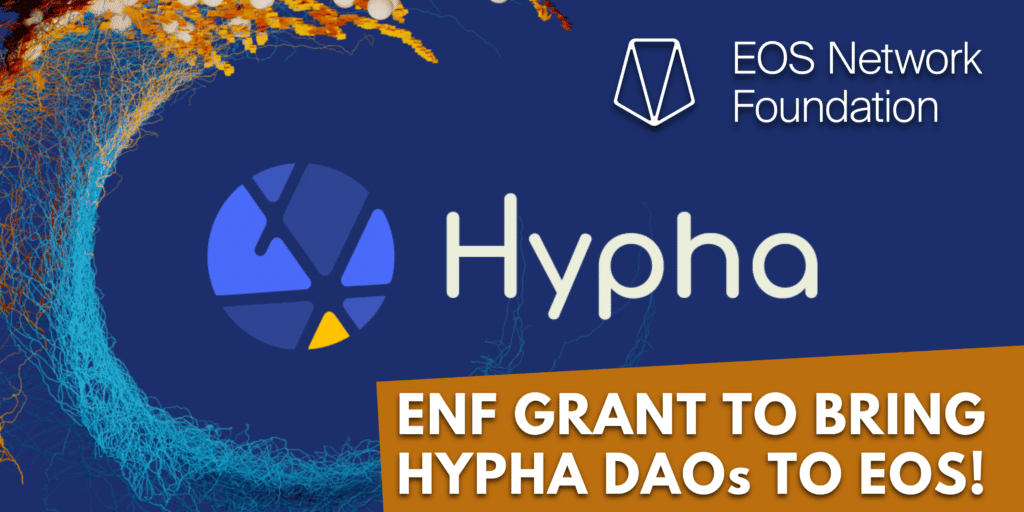
HyphaDAO is an organization that has designed a structure for decentralized autonomous communities using a framework they call the Decentralized Human Organization (DHO, pronounced “duː”). The system features roles, archetypes, voting, contributions, and other essential tools for getting things done in a decentralized organization.
The ENF has announced an $850K grant to bring Hypha and their “Organization-in-a-box solution” to EOS. This grant will greatly accelerate Hypha’s further product development, help fuel a powerful roadmap of new advanced features, and provide a welcome home base for Hypha to create the thriving network of innovative ventures they have long envisioned.
Thanks to this tooling from Hypha, organizations that wish to build on EOS can access a robust suite of tools for structuring and managing their Decentralized Autonomous Organizations (DAOs) while pursuing new opportunities for cooperation.
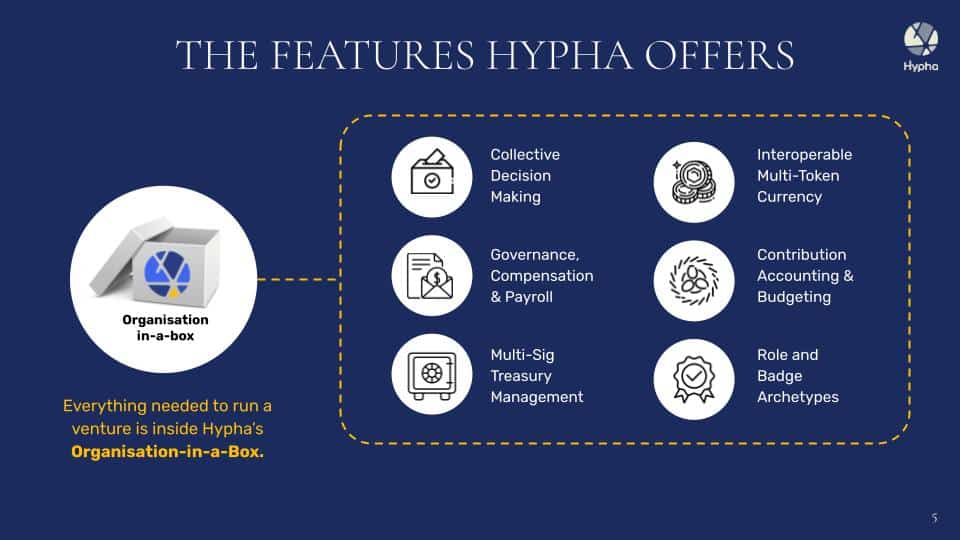
At the same time, thanks to the high performance of the blockchain and the existing Eden governance process, the EOS network itself is well positioned to become an oasis for organizations desiring to build and grow within a fully featured DAO ecosystem.
The Eden process is a unique, game theoretical approach to periodically selecting leadership in a way that resists capture by special interests through randomness, optimizing for consensus building, and a bottom-up approach.
While Eden excels at selecting trusted community members, it has historically lacked the organizational toolset that would allow it to express the true value of its governance capabilities.
As part of the agreement with the ENF, Hypha will be adding the Eden Democratic Process as a governance setting in its voting module, so all new DAOs using Hypha may elect to use an Eden governance process.
In addition, for the current Eden, Hypha will add a unique solution that allows this organization to integrate Hypha features with the existing Eden smart contract.
EOS members will access Hypha’s DAO solution via a range of attractive price plans, including a freemium option, to start their own DAO journeys.
Introducing Hypha’s “Organization-in-a-box solution” within the EOS Ecosystem will enable all organizations to leap into new modes of cooperation and self-governance that would otherwise be inaccessible, messy, and overly challenging. It’s not hard to imagine these advancements catalyzing an explosion of decentralized exponential growth within the entire EOS network and beyond.
OCI and the ENF Strike Multi-Million Dollar Deal to Accelerate Innovation on EOS
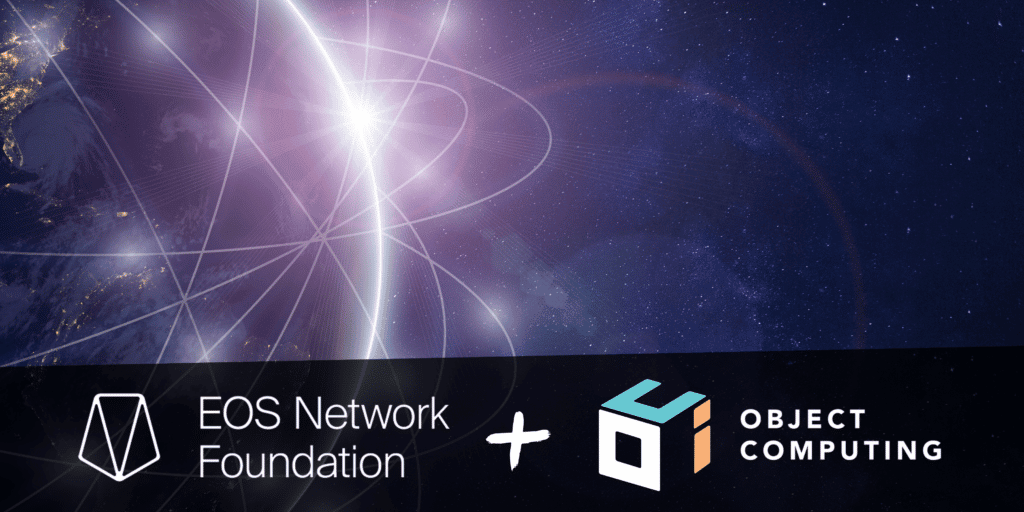
Object Computing, Inc (OCI), the team behind the new Leap v3.1 software, helped empower the EOS Network’s transition to independence. In September 2022, the ENF announced a long-term contract with OCI to collaborate on making EOS the most performant and easy-to-use blockchain in the world, focusing on scalability, security, and speed.
The ENF began its partnership with OCI early on, working in parallel with its internal engineering team to accelerate the development of the community-run Antelope (formerly EOSIO) protocol. Most core protocol developers who are deeply familiar with the EOS codebase hail from the ENF or OCI. With the pair now committed to working together for the benefit of the network long term, EOS and the wider Antelope ecosystem are on very solid footing.
Even as the network prepares for the Leap 3.1 consensus upgrade on September 21, both parties are working on Leap 3.2, along with tools and improvements beyond.
Pomelo Season 3 Analysis Results

Pomelo is a user-guided public goods funding platform inspired by Gitcoin that splits a matching pool of funds between approved public goods grants. Pomelo calculates each grant’s proportional share of the matching pool by running user donation data through a quadratic formula. This formula uses a square root function to minimize the influence of large token holders while boosting the effect of unique contributors.
Pomelo’s third season wrapped up on August 18, with approved grants vying for total matching funds of $366,186. The EOS community raised $133,399 additional funds in direct donations to support 172 approved grants! Overall, Pomelo distributed $499,585 to public goods providers on EOS.
Each season the Pomelo team audits the results to identify any intent to game the quadratic funding system. The team ensures that grants follow the Pomelo Terms and Conditions and adjusts the matching pool distribution where there is evidence of system abuse.
For those few grants that had their matching allocation reduced, some donations to these grants show patterns of Sybil attack originating from one person or a group of people.
Nine grants had their matching allocation reduced by 84% or more
Five grants had their matching allocation reduced by 37% – 79%
At the same time, many grants saw their matching allocations increase. Due to disqualifications and collapsing Sybil donations, more of the matching pool became available to grants not subject to Sybil attack or other system abuse. The adjustments redirected $155,112 of the matching pool this season to fair-playing grants.
EOS Dapp on the Playstation 5
Italian startup Hoken Tech created and launched a card game developed on the EOS blockchain. The game is a fantasy card game inspired by the city of Molfetta, where Hoken Tech is based.
Users can play the game from desktop, mobile or even new consoles. The game has been tested and played on a PlayStation 5, making it the first EOS dApp game to be played on a new generation console. This cross-compatibility demonstrates the power and flexibility of the EOS blockchain.
TrustEVM GameFi Hackathon 2022 Demo Day
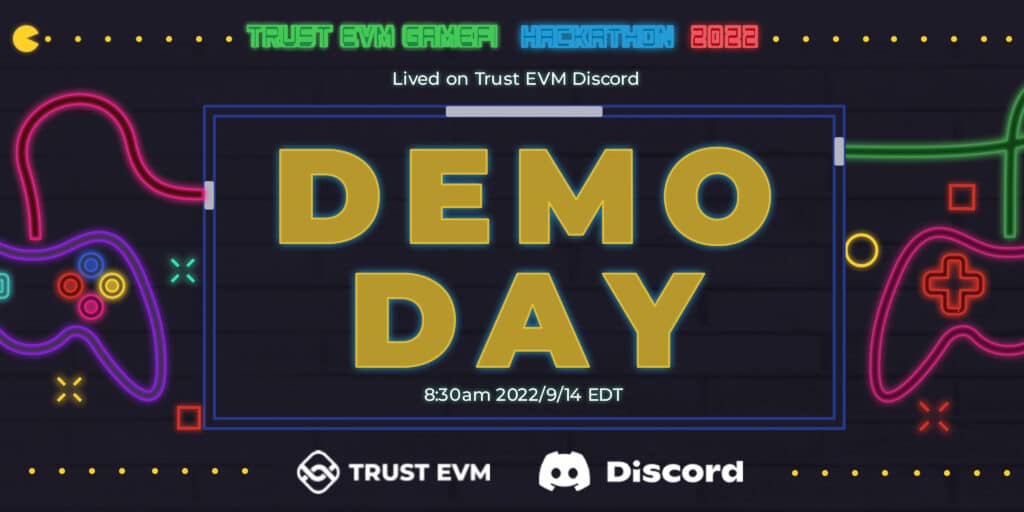
Video games are an industry ripe for disruption through blockchain, and the rise of “play-to-earn” models has brought “GameFi” more recognition than ever before.
At the ENF, we recognized this trend and sponsored a hackathon to celebrate the impending release of the Trust Ethereum Virtual Machine (TrustEVM).
The TrustEVM GameFi hackathon culminated in the 2022 hackathon demo day on September 14. Founders and participants publicly shared their hackathon projects with the community, with community members like Yves La Rose expressing their excitement for some of the projects.
The projects on the Demo Day included first-person shooters, third-person adventure games, card games, sports games, game ecosystems, and many others. The founders’ passion is infectious, and the diversity of projects highlights the myriad applications of high-performance blockchain technology in the gaming space.
Weekly EOS Community Events & Upcoming Conferences
Blockchain Expo Amsterman, Netherlands, September 20-21 (Tue-Wed)
Website
Upbit Dev Conference, Busan, Korea, September 22-23 (Thu-Fri)
Website
EOS Fireside Chat, Wednesdays at 19 UTC
Discord, Youtube, Short Clips,
